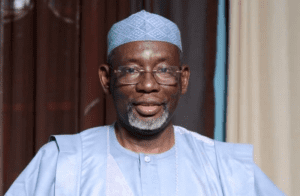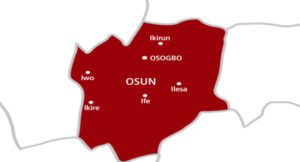NACTAL seeks stakeholders’ support to end human trafficking
The Network Against Child Trafficking, Abuse and Labour (NACTAL), a non governmental organisation, has called for stakeholders’ engagement to complement government’s effort to end human trafficking in the country.
This is contained in a statement by NATCAL’s National President, Mr Abdulganiyu Abubakar on Thurdsday in Dutse, Jigawa, as part of activities to mark the 2022 European Union Anti Trafficking Day.
He said the call was impreative towards mobilising critical stakeholders including community and religious leaders, community influencers, opinion leaders, youth and women groups, the organised private sector and Civil Society Organisations to support the efforts of government in ending human trafficking in the country.
This, he said, could be achieved by empowering the poor and vulnerable families in their various localities.
“As the EU Anti trafficking Day is being commemorated, NACTAL Nigeria remains committed to supporting the National Agency for the Prohibition of Trafficking in Persons (NAPTIP) and the Government of Nigeria in the fight against human trafficking,” he said.
He described human trafficking as global reality, gross human rights violation and a crime that deceitfully exploits people, including women, girls, youth and children.
Abubakar noted that the United Nations stressed the need for concerted efforts by stakeholders to end trafficking across the globe.
According to him, trafficking involves recruiting and transporting people into a situation of exploitation due to their vulnerability as a result of unemployment, homelessness, illiteracy among others.
He said victims and survivours of human trafficking faced different forms of exploitations such as forced and child labour, forced marriage, prostitution and organ harvest.
While quoting the UN Report on human trafficking, Abubakar said: “It is estimated that annually, there are between 20 and 40 million people who are in modern slavery globally.
“Human trafficking earns estimated profits of $150 billion annually for traffickers, with $99 billion from commercial sexual exploitation.
“Also, an estimated 71 per cent of human trafficking are women and girls while men and boys account for 29 per cent”.
According to him, in Nigeria, human trafficking affects the 36 states and Federal Capital Territory (FCT), adding that lack of data had made it difficult to establish prevalence of human trafficking in the country.
He, however, said statistics of the NAPTIP indicated that 75 per cent of victims were being trafficked across states, 23 per cent trafficked within states and two per cent trafficked outside the country.
“Many of our youths particularly women and girls have continued to be trafficked within and outside the country with some of them been seen on social media calling the government and the Nigerian people to come to their aid.
“The government spend huge amount of money to rescue them from their host country back to Nigeria where huge amount is also expended on rehabilitation and empowerment of the survivors.
“Nigeria is a source, transit, and destination state for women and children subjected to trafficking in persons including forced labour, sexual exploitation and forced prostitution,” he said.
He said that poverty, unemployment, lack of educational and economic opportunities, displacement and ignorance continued to predispose thousands of women and girls to dangers of traffickers who capitalised on their vulnerability to recruit, transfer and harbour them for the purpose of exploitation.




